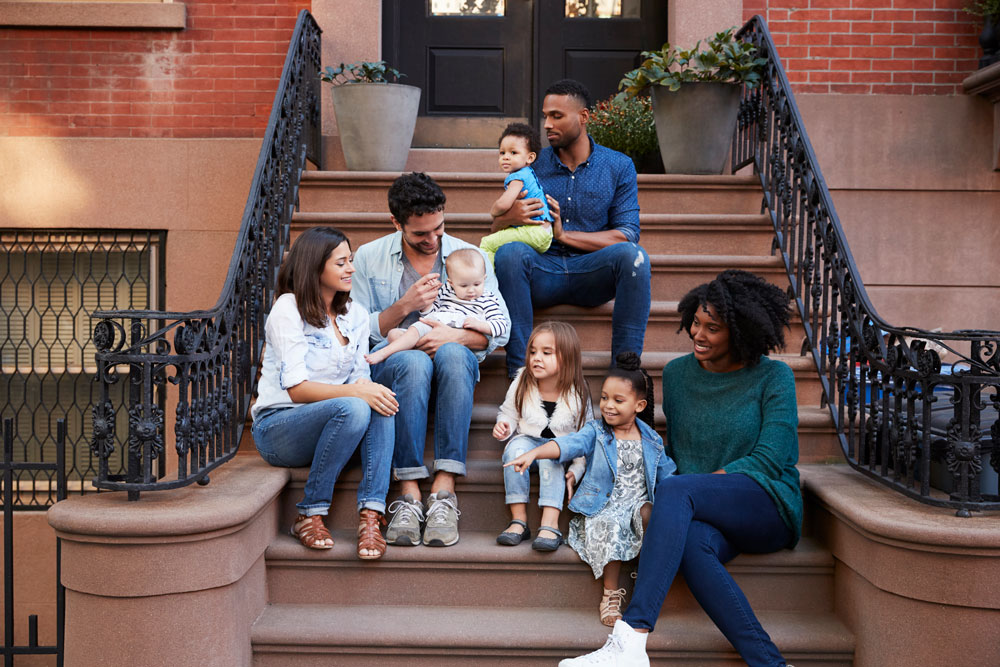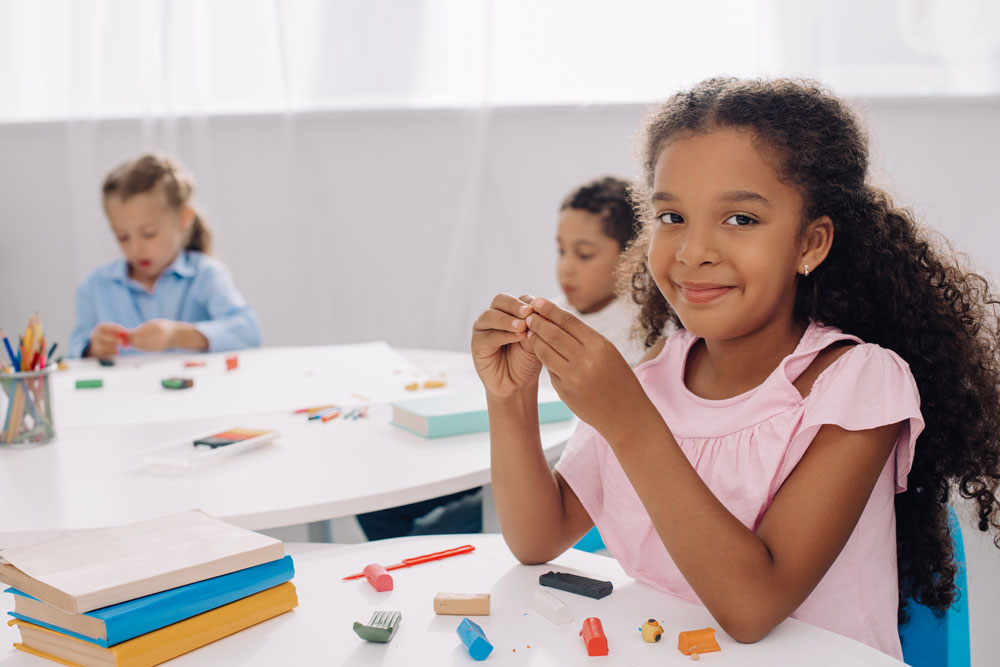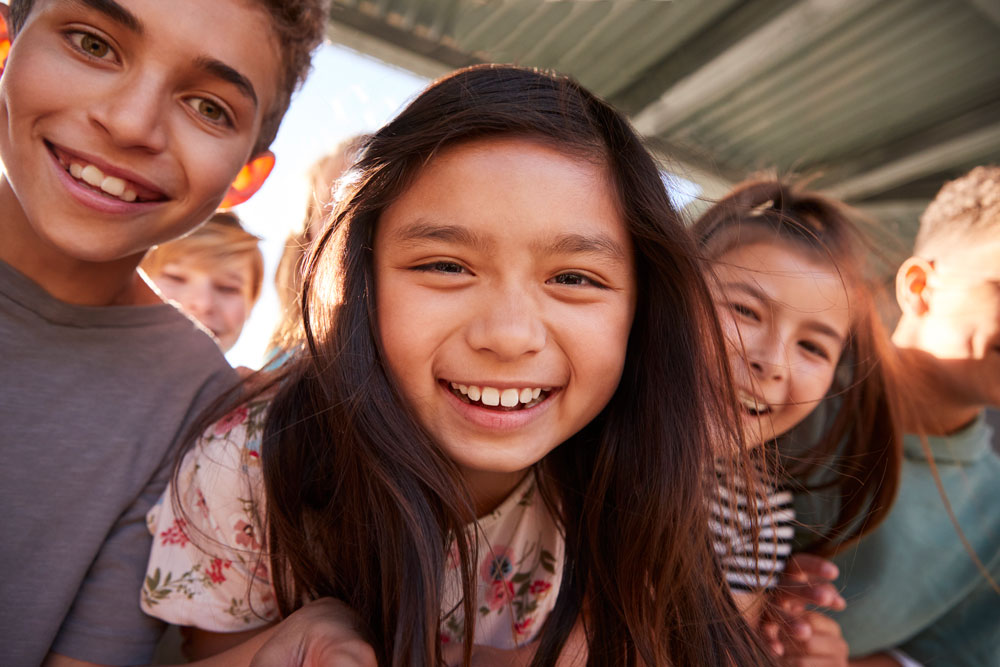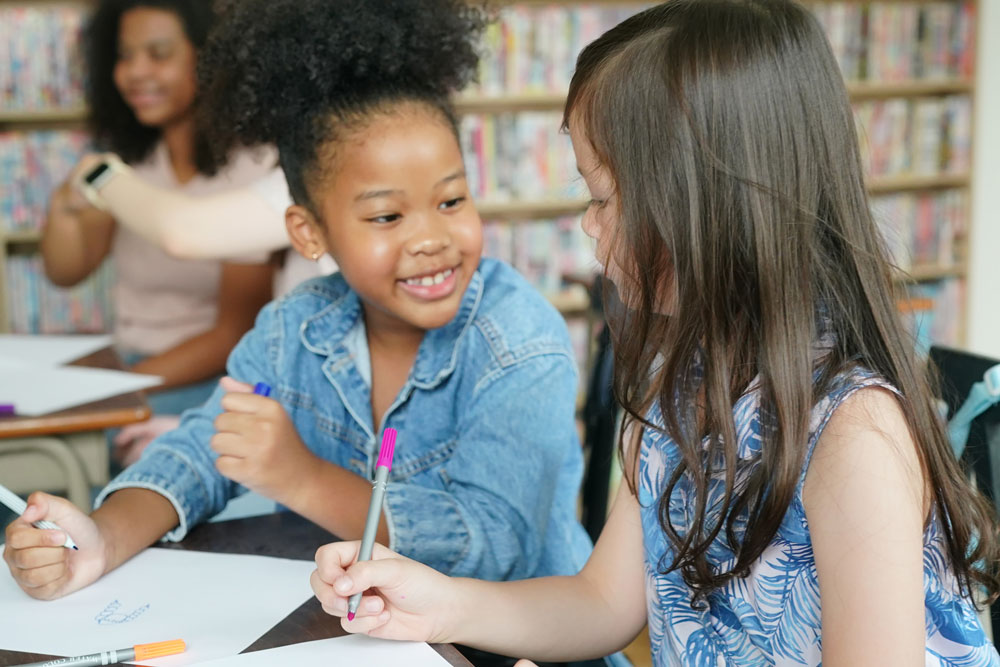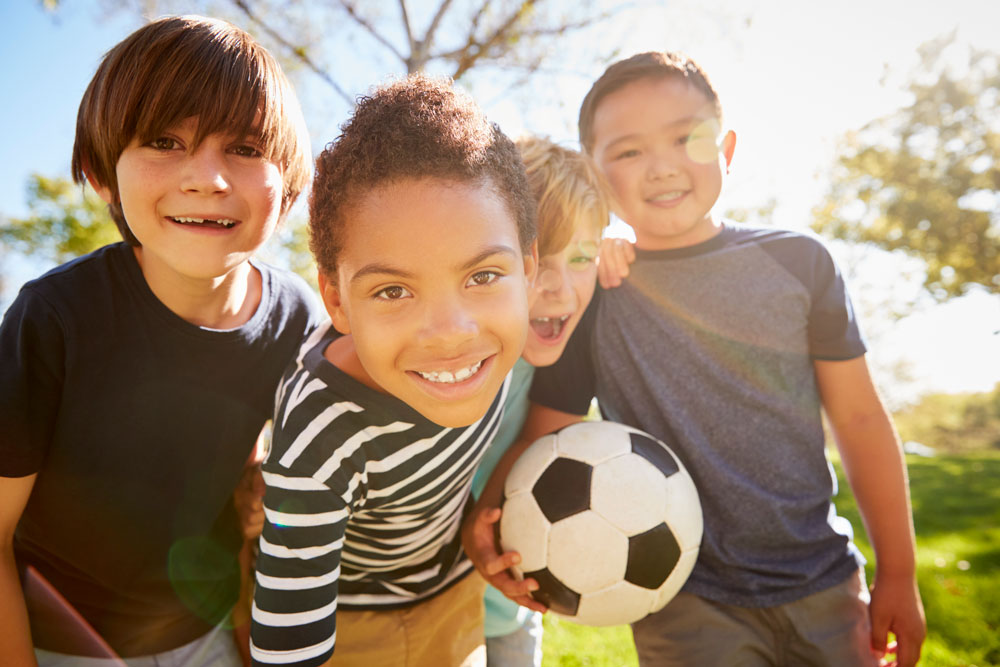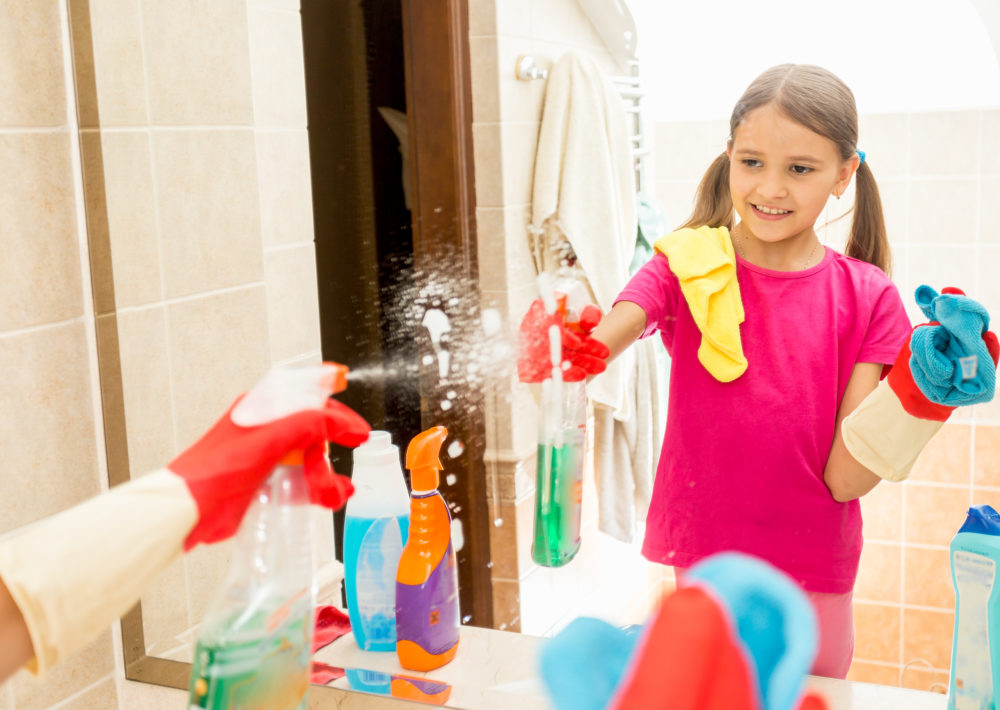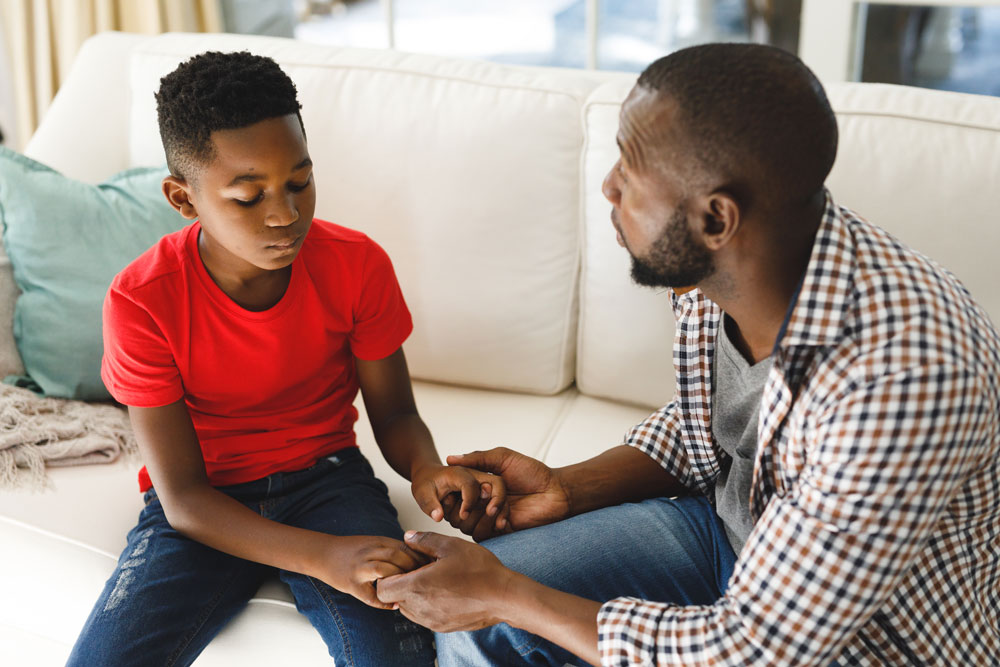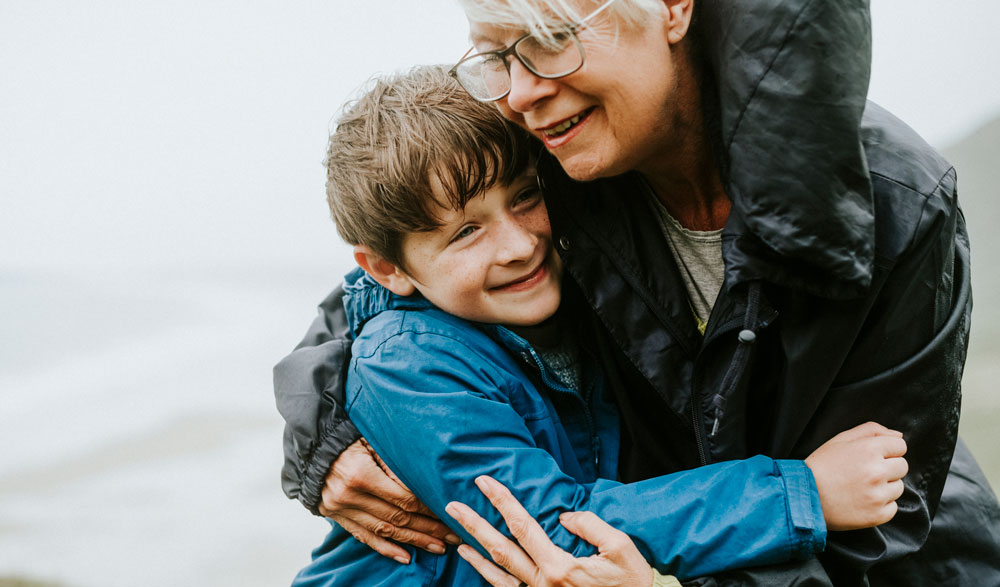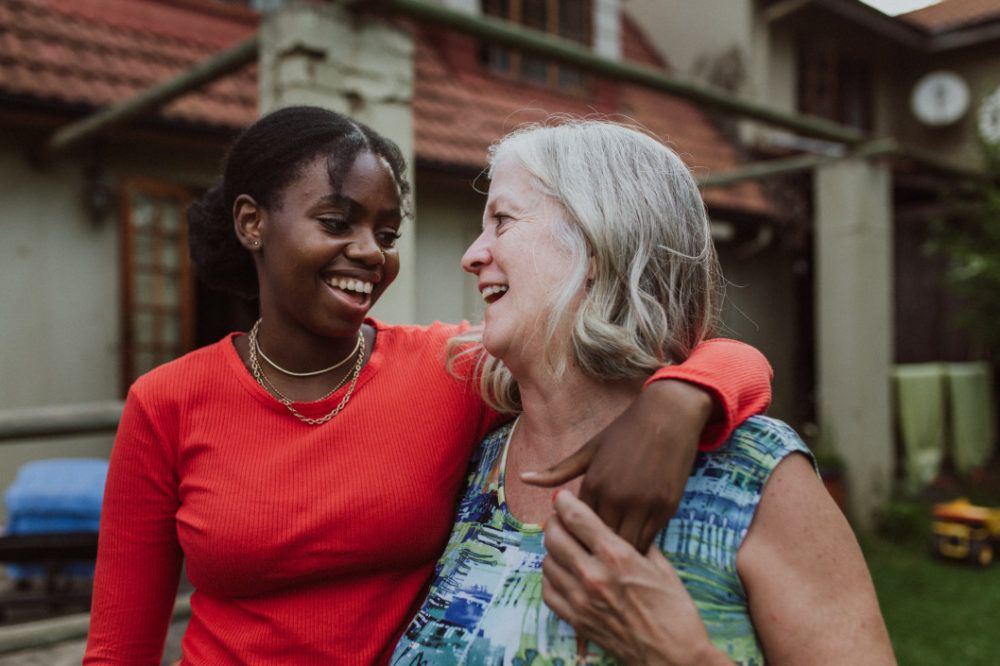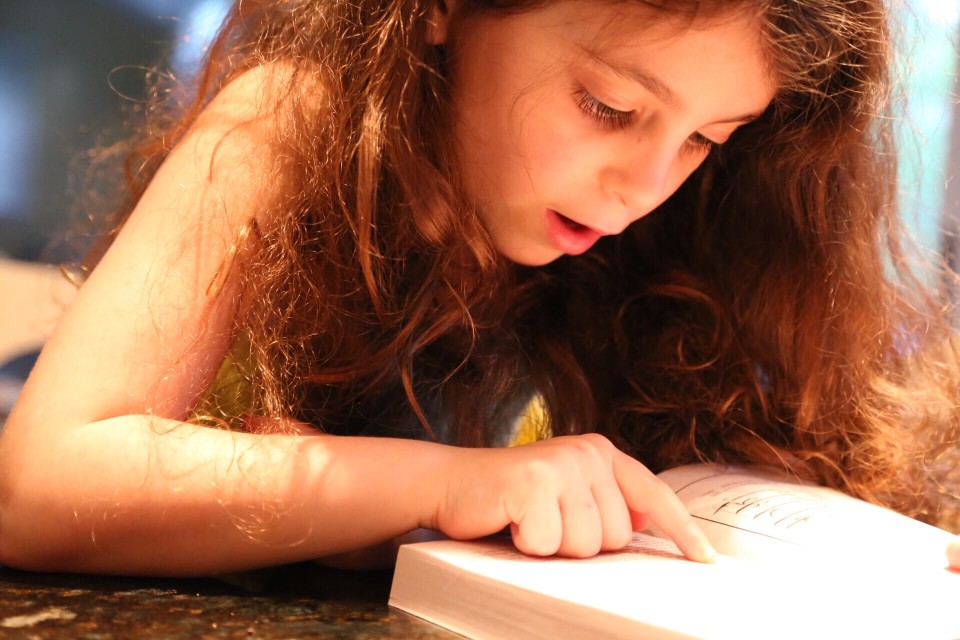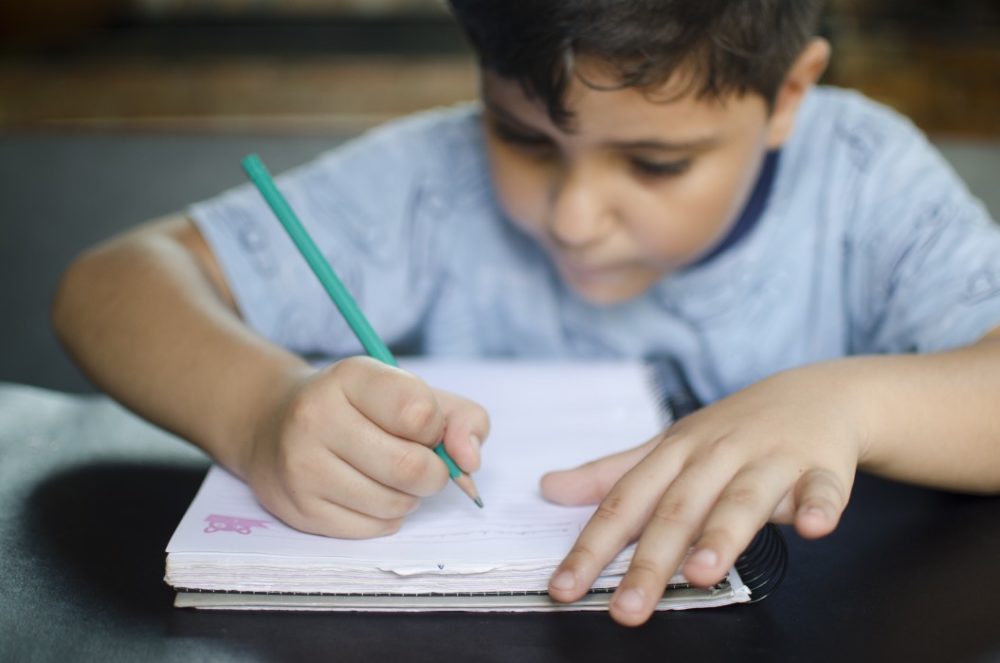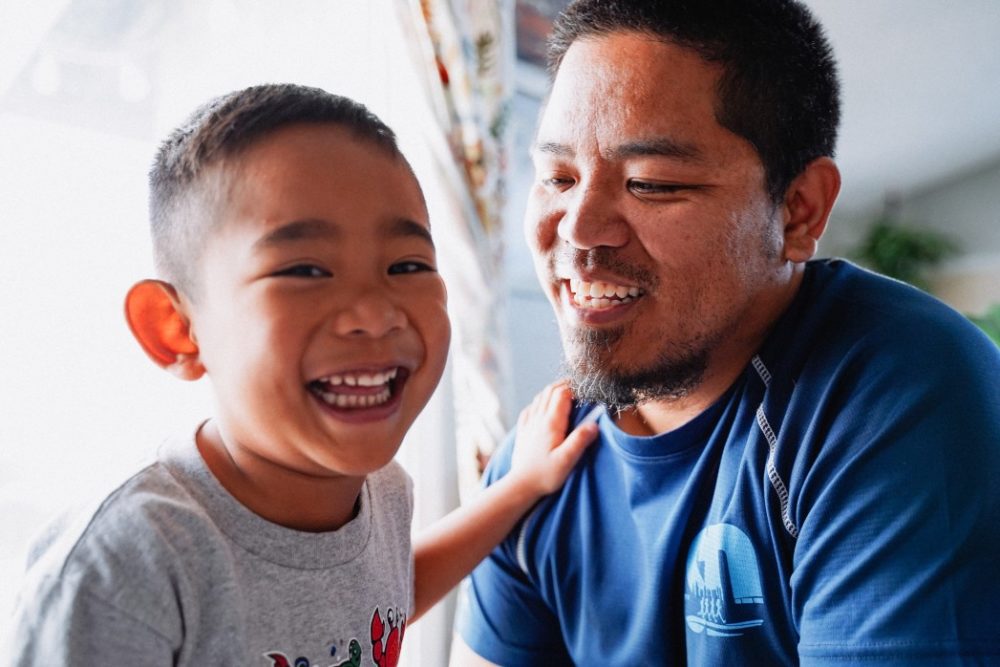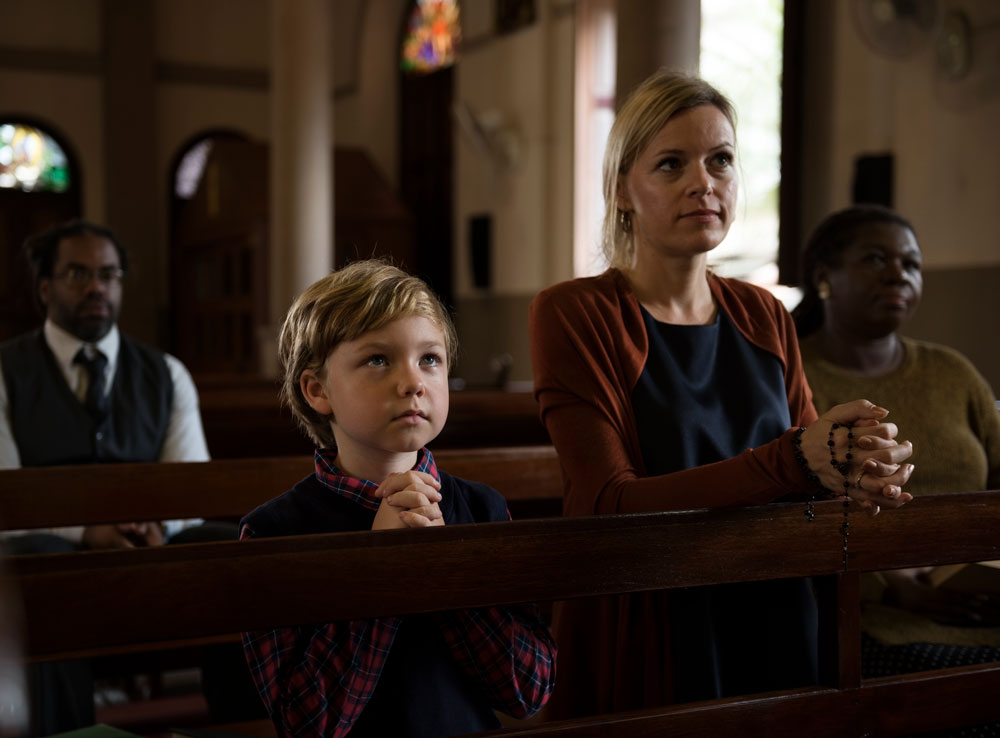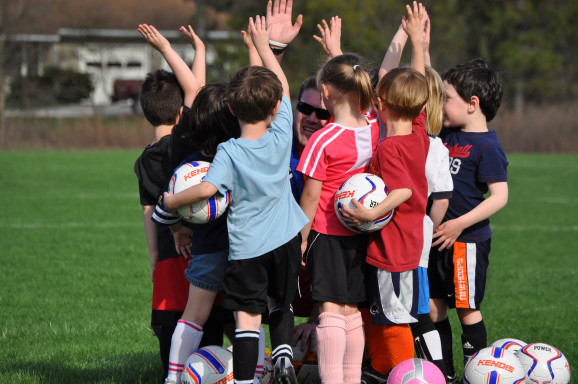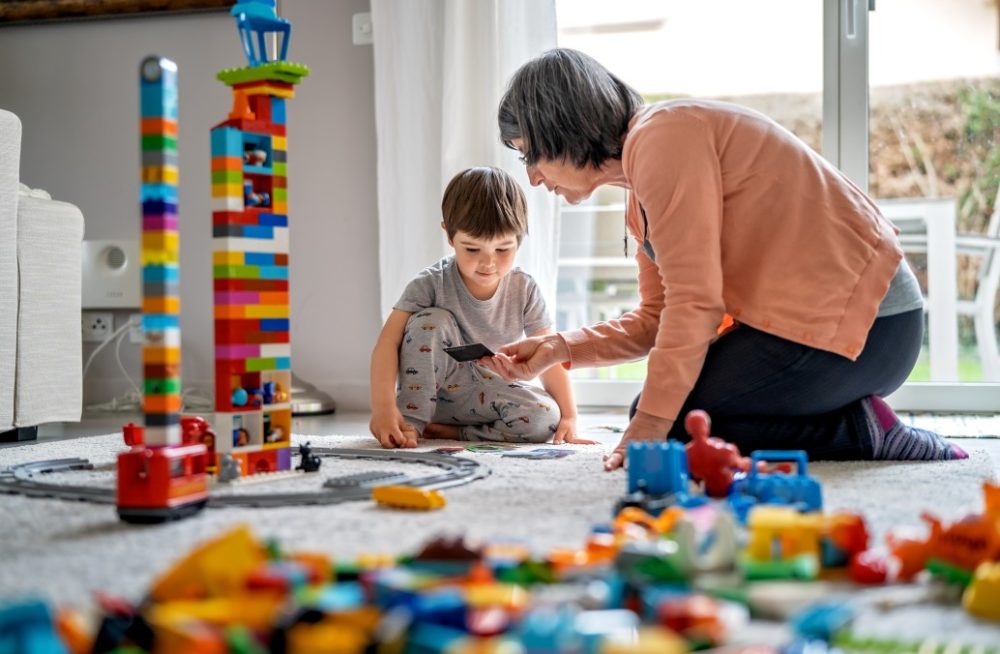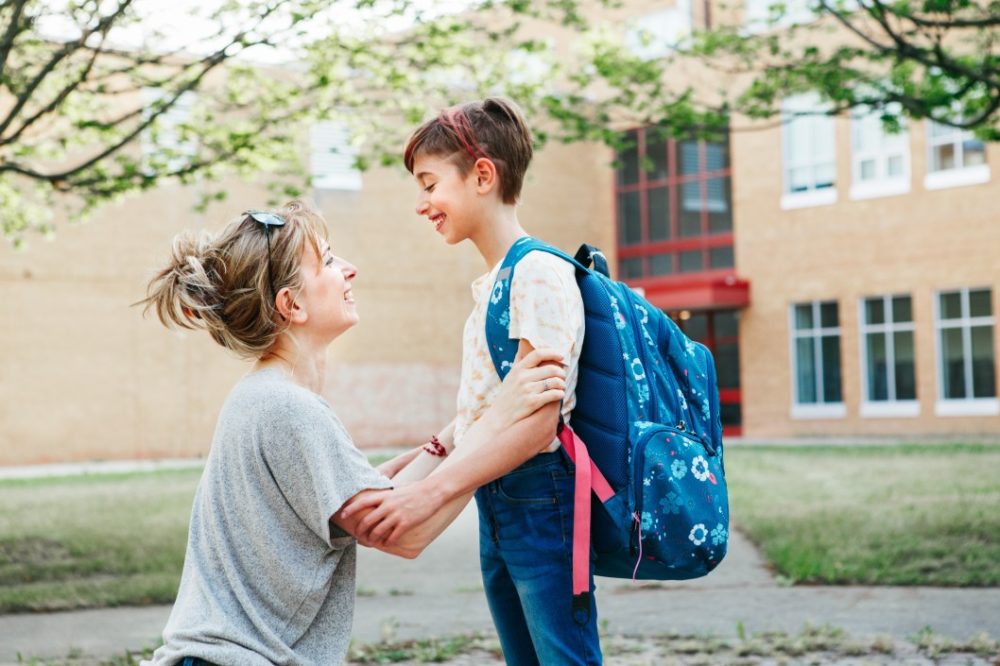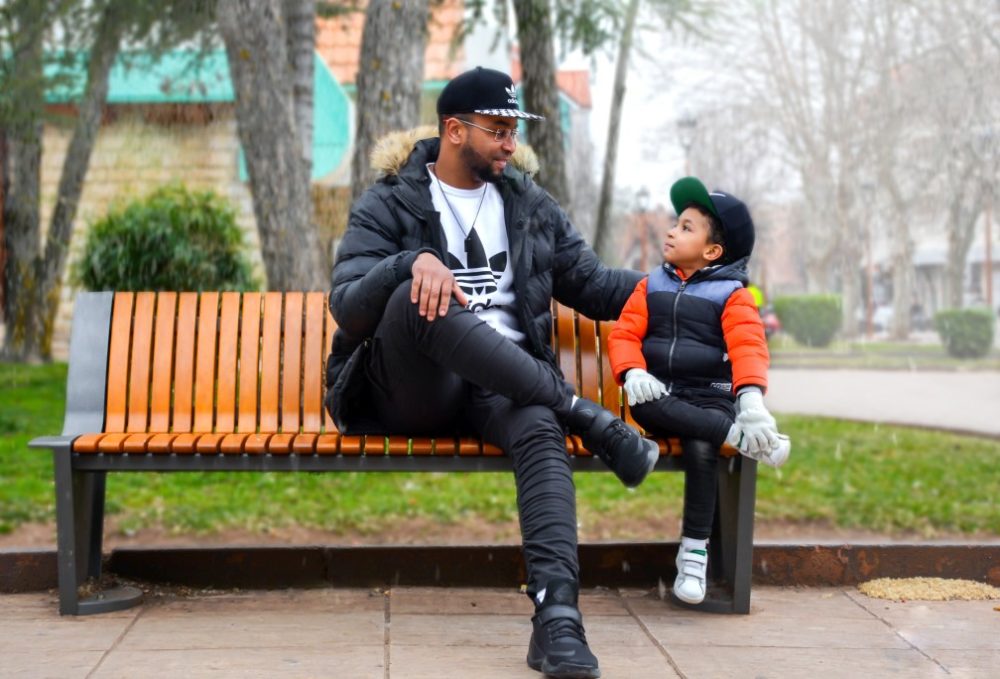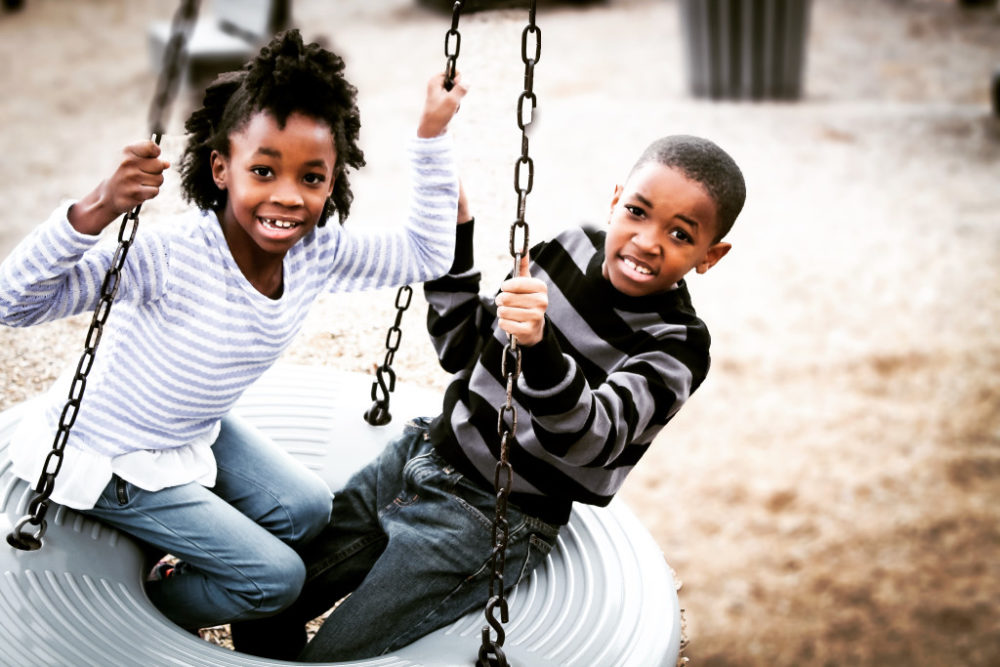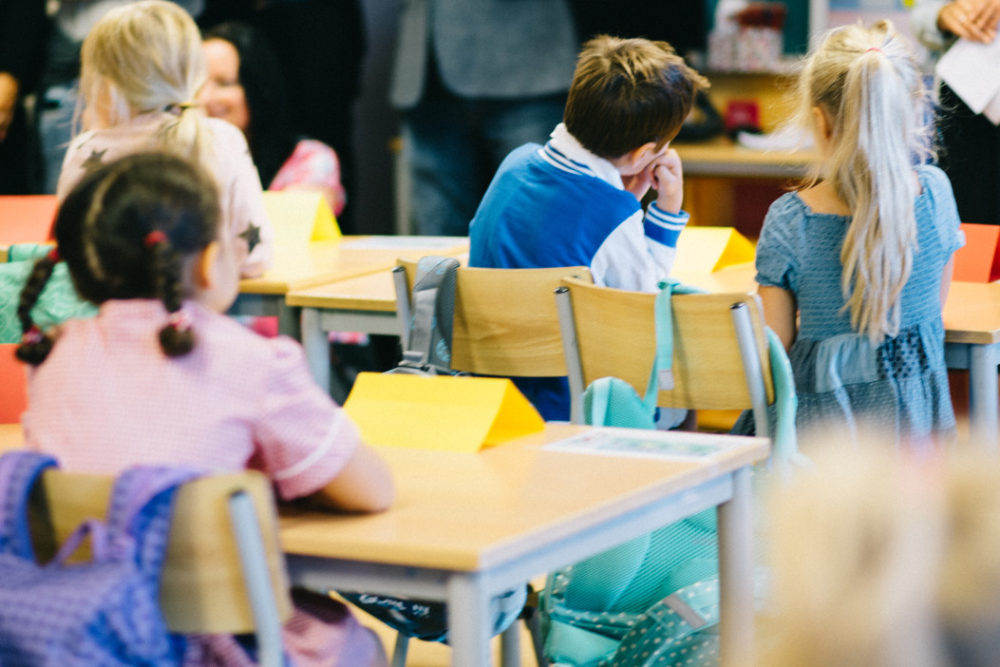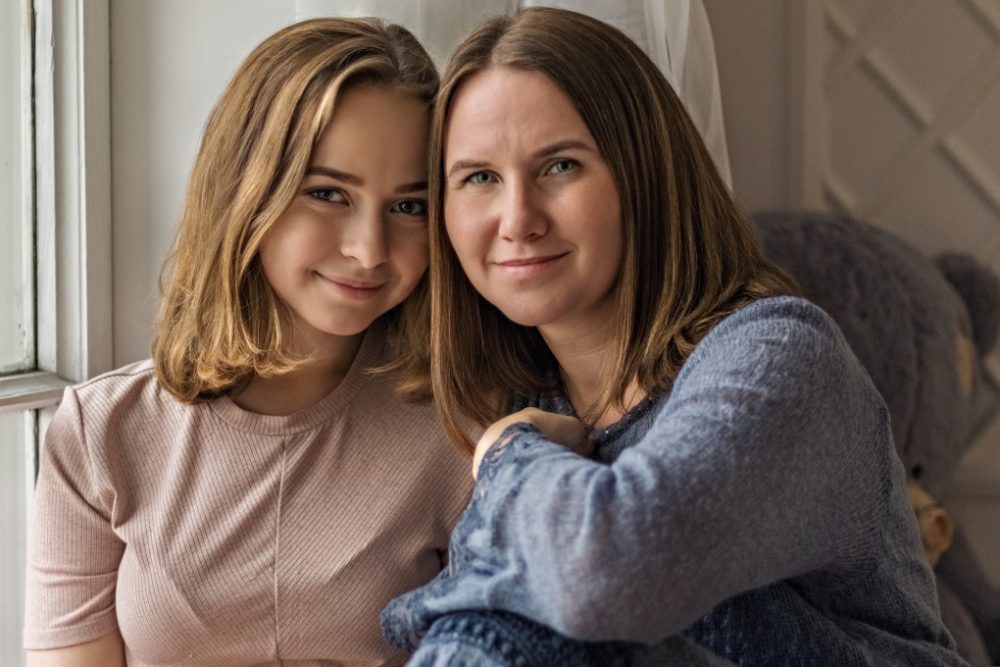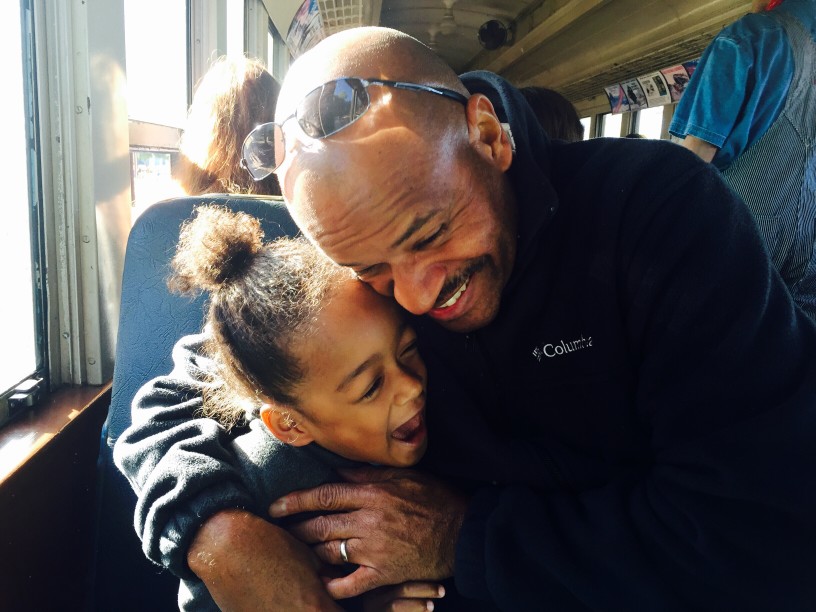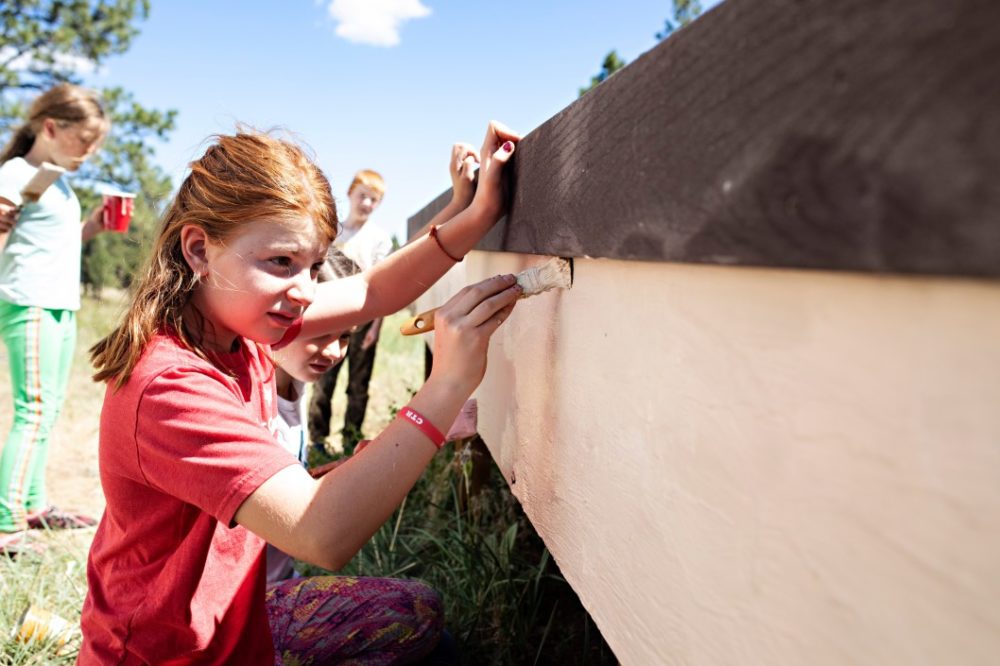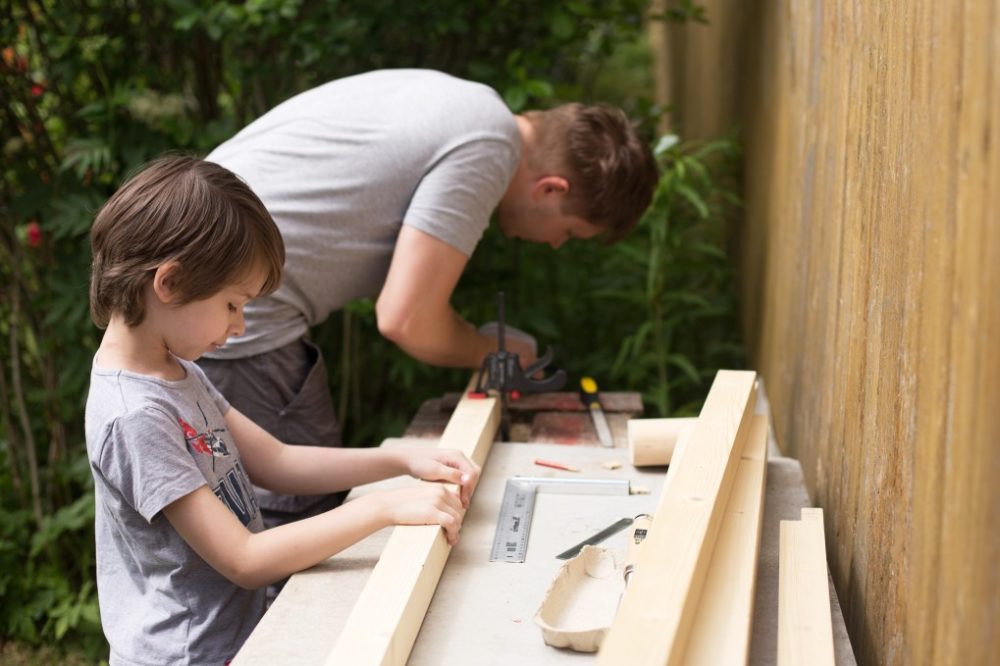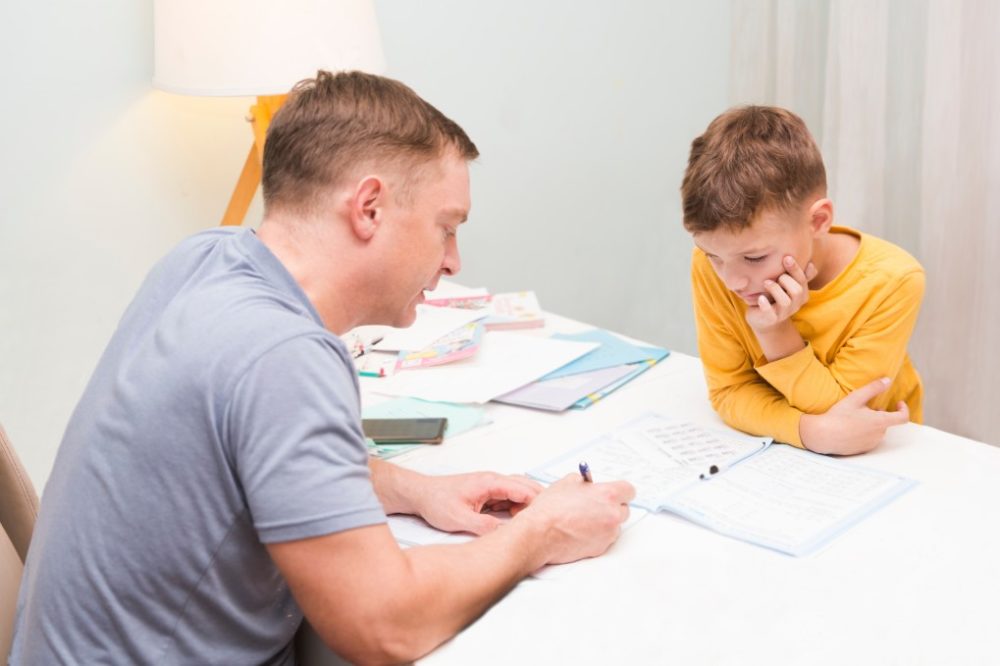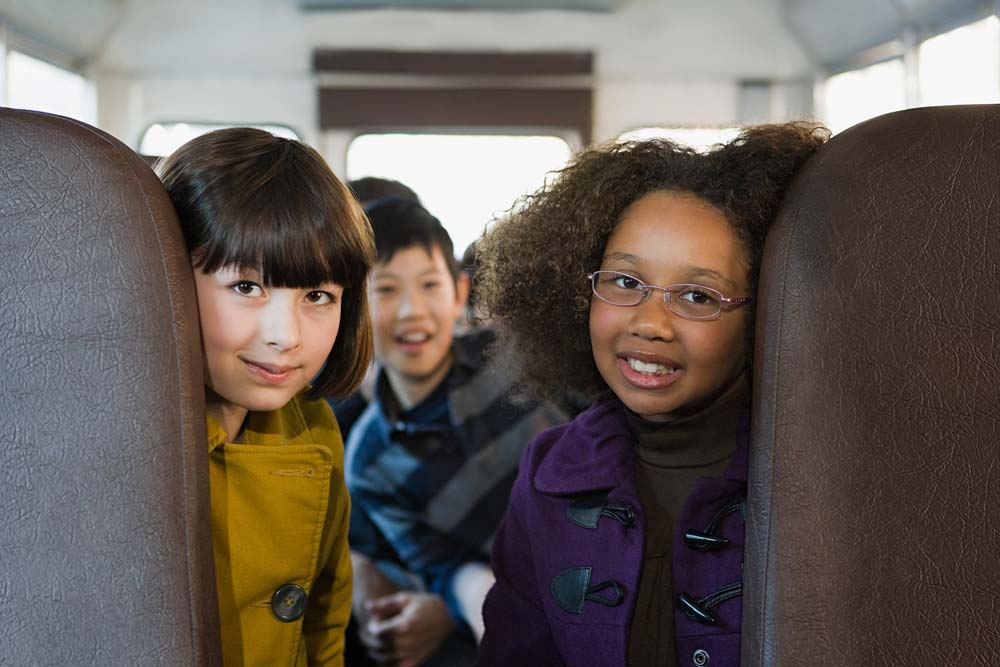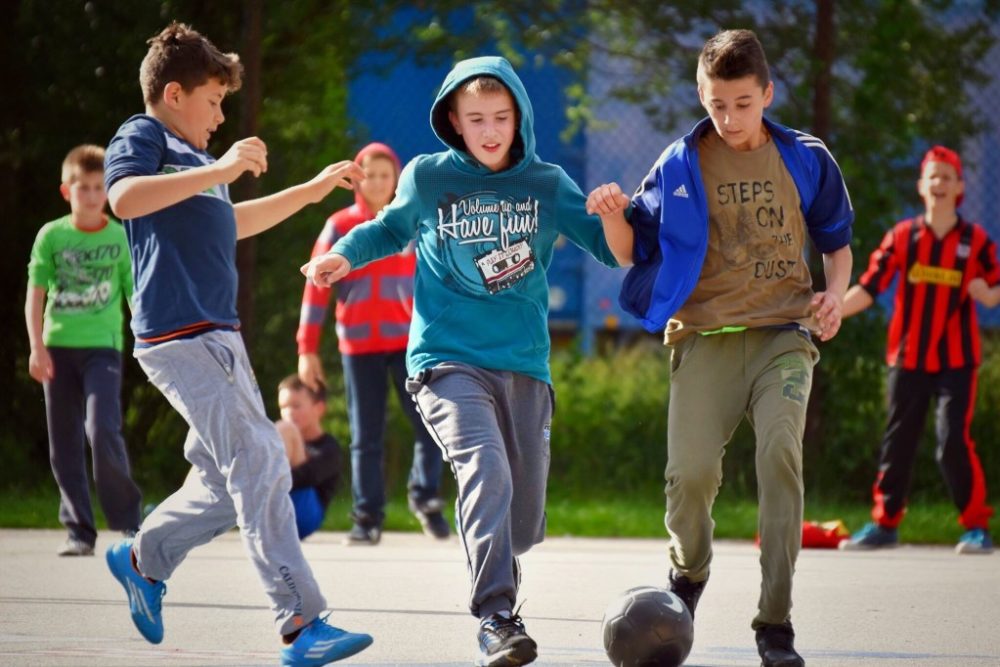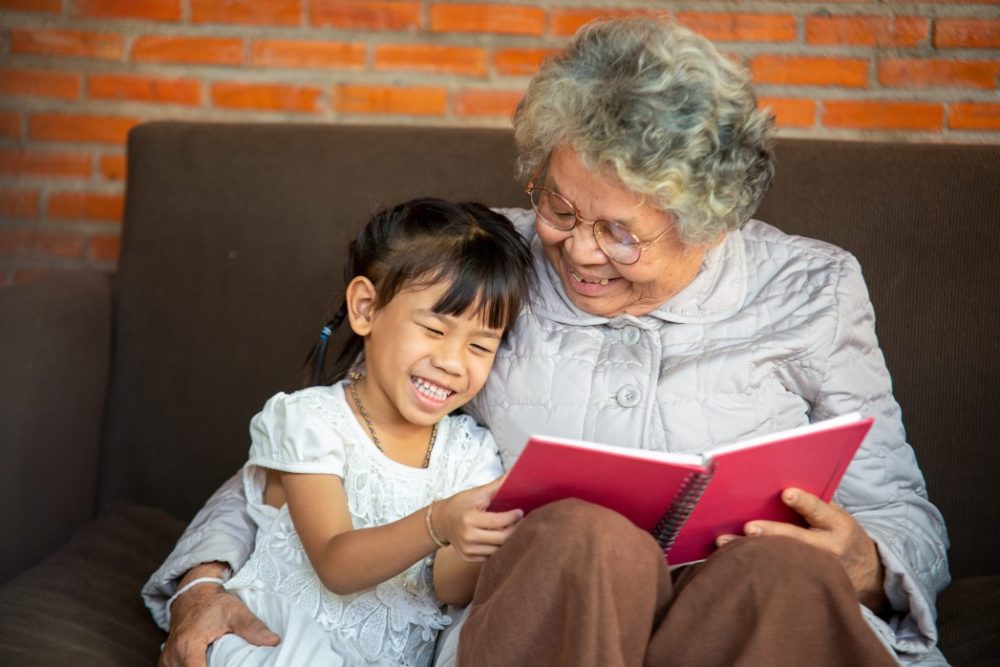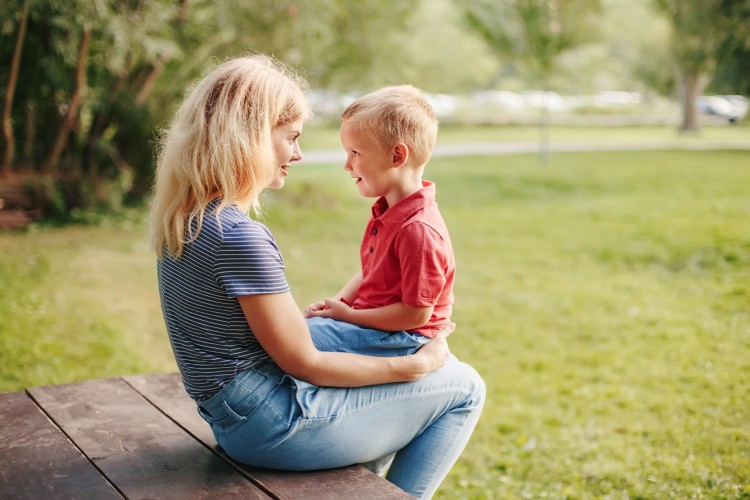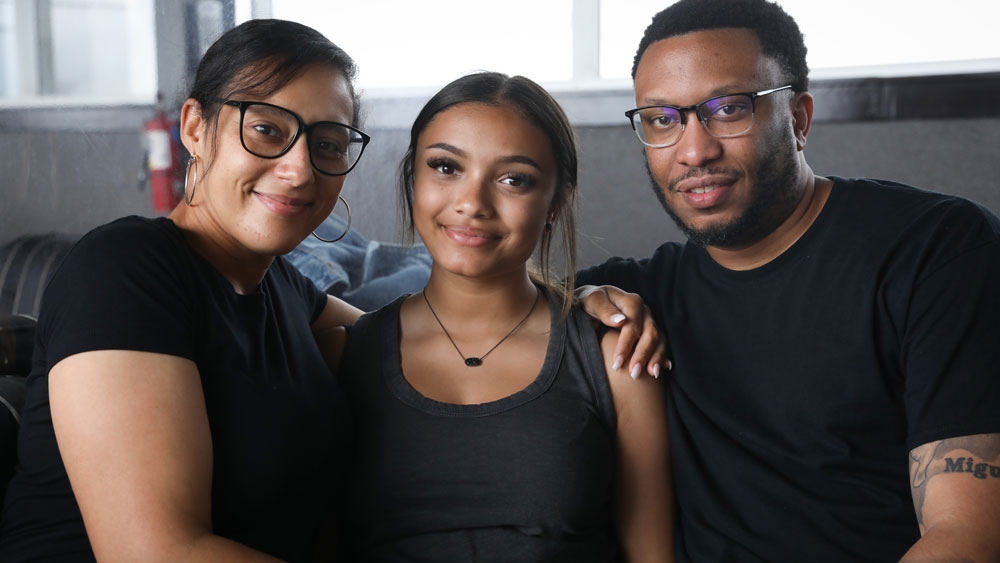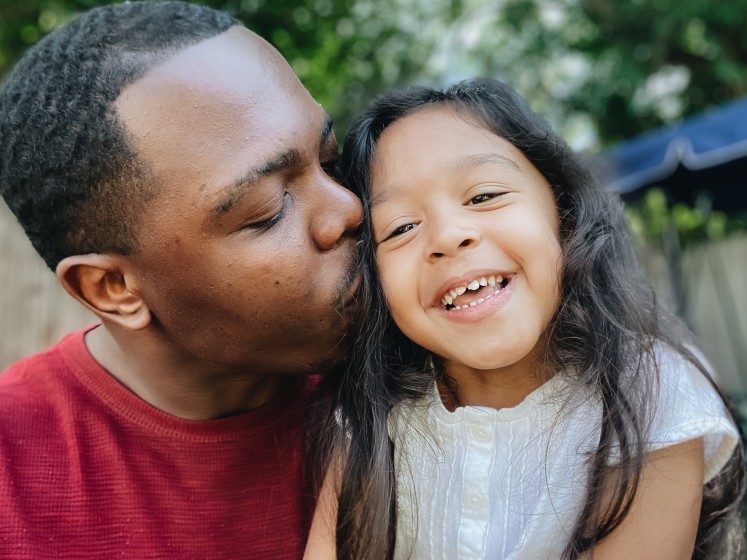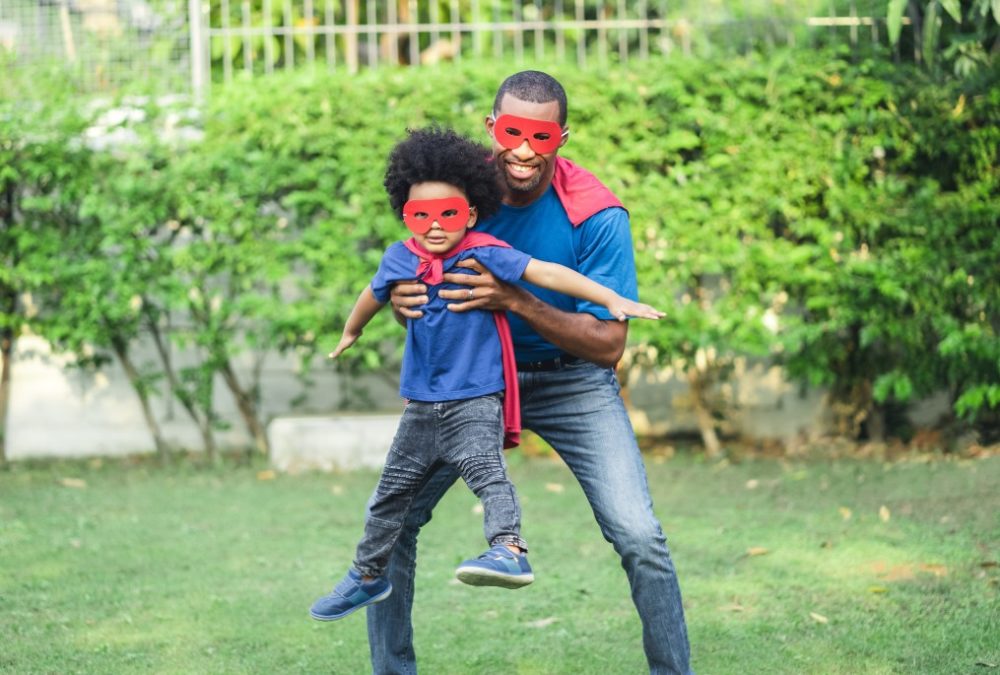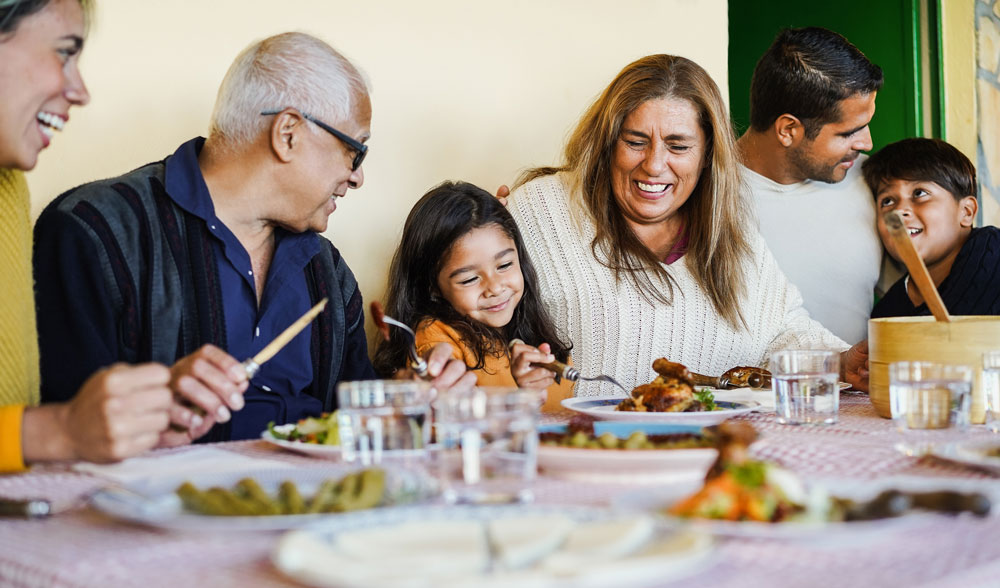Parenting Articles
Asset 11: Family Boundaries Asset 2: Positive Family Communication
Lots of parents see the new year as a time they can help make a shift in their family, and they’re right! The new year is the perfect chance to take a look at your parenting and see if there are changes you might like to make.
Asset 14: Adult Role Models Asset 2: Positive Family Communication Asset 20: Time at Home
Around Thanksgiving, many of us turn our minds to what we are grateful for, and for parents and caregivers, that often leads us to ask a few questions.
You are not alone. Raising young people takes a group effort and everyone—parents, grandparents, aunts, uncles, teachers, friends, clergy, coaches—play an important role. There are people, places, and resources everyone can turn to when help is needed to support young people.
Asset 40: Positive View of Personal Future
Research shows that young people who are optimistic about the future have better relationships with their parents, increased self-esteem, and decreased emotional or behavioral problems, such as depression, early sexual activity, and violence.
Asset 39: Sense of Purpose
When young people think today about what they want to accomplish in their lives, it shapes their sense of purpose. Each and every young person has something unique to offer the world.
Asset 38: Self-Esteem
Teach young people the values and actions that will build genuine self-esteem, including caring, giving, treating others with kindness and tolerance, and always doing your best in school and other activities.
Asset 37: Personal Power
When young people feel empowered, they feel more confident to make their own choices—to get good grades, participate in activities they enjoy, and take action to find solutions to problems.
Asset 37: Personal Power Asset 38: Self-Esteem Asset 39: Sense of Purpose Asset 40: Positive View of Personal Future Positive Identity
People who have a strong, positive sense of self maintain these qualities even when difficulties arise. They continue to be hopeful and optimistic, and believe they can make a difference.
Asset 36: Peaceful Conflict Resolution
Research shows that young people who resolve conflicts peacefully do better in school, have higher self-esteem, and are less likely to use alcohol and other substances.
Asset 35: Resistance Skills
Learning resistance is one of the most important social skills to develop. With these skills in hand young people make appropriate decisions and stand firm in what they believe.
Asset 34: Cultural Competence
Although most people gravitate toward people who are similar to themselves, it’s important to expose young people to a variety of cultures and people. People from different cultural, ethnic, and racial backgrounds can learn many things from one another.
Asset 33: Interpersonal Competence
Research shows that young people who have empathy, sensitivity, and friendship skills are more likely to grow up healthy and avoid risky behaviors, such as violence and alcohol and other drug use.
Asset 32: Planning and Decision Making
Young people make a lot of decisions every day. All of these decisions are good practice for their future as they learn how to take more control of their lives.
Asset 32: Planning and Decision Making Asset 33: Interpersonal Competence Asset 34: Cultural Competence Asset 35: Resistance Skills Asset 36: Peaceful Conflict Resolution Social Competence
Social competencies are the skills and life perspectives young people need to develop into healthy, competent adults. These skills are important daily, but they’re even more crucial when young people encounter the tough times in life.
Asset 31: Restraint
Work with young people to focus on long-term outcomes—not just on the moment. Helping them to internalize and stand up for their personal values also makes it easier for them to practice restraint and withstand negative peer pressure.
Asset 30: Responsibility
Following rules is important, but is doing as you’re told enough? To become strong, upstanding, and successful adults, possessing a personal desire to be responsible is also significant.
Asset 29: Honesty
Although telling the truth is not always easy, teaching young people the value of honesty, is important. Honesty is crucial for success in all areas of life, including relationships, school, and jobs.
Asset 28: Integrity
Anytime young people draw on their inner spark of courage and act based on their values, they have integrity. The best way to teach integrity to young people may be to practice and model it yourself.
Asset 27: Equality and Social Justice
Young people who are concerned about equality and reducing hunger and poverty may not know what life is like for those who suffer these conditions, but they do understand it’s important to care for people—all people.
Asset 26: Caring
It’s important for young people to be involved in both direct and indirect caring. Direct help is when you spend time and interact with people who need care. Indirect help is when you collect money, food, or other items to give to people who distribute the items to those in need.
Asset 26: Caring Asset 27: Equality and Social Justice Asset 28: Integrity Asset 29: Honesty Asset 30: Responsibility Asset 31: Restraint Positive Values
Asset 25: Reading for Pleasure
Reading for fun teaches young people how to become strategic, skilled readers. They learn the difference between reading for a test and reading for pleasure. They learn when to read carefully or skim, ask questions or consult a dictionary.
Asset 24: Bonding to School
Research shows that young people who care about their school are less likely to be involved in violence or the use of alcohol and other drugs. They also are more likely to become good leaders, value diversity, and succeed in school.
Asset 23: Homework
In addition to reaching academic goals, doing homework teaches young people to follow directions, manage their time, and work on their own.
Asset 22: School Engagement
Help young people understand that academics are just part of the education they must complete to successfully attain goals.
Asset 21: Achievement Motivation
Doing well academically doesn’t have to mean getting straight A’s or being the valedictorian. It does mean doing their best work and caring about their performance, whether they’re creating an art portfolio or writing an essay.
Asset 21: Achievement Motivation Asset 22: School Engagement Asset 23: Homework Asset 24: Bonding to School Asset 25: Reading for Pleasure Commitment to Learning
Instilling Commitment to Learning involves a combination of values and skills that include the desire to succeed in school, a sense of the lasting importance of learning, and a belief in one’s own ability.
Commitment to Learning Positive Identity Positive Values Social Competence
Young people learn by example and repetition. Model and explain how your own behavior upholds the values and beliefs you—and your family—have.
Asset 20: Time at Home
Research shows spending quality time together as a family helps young people strengthen skills such as leadership, good health, and success in school.
Asset 19: Religious Community
Young people who spend at least one hour a week involved in activities within a faith-based organization are more likely to: provide service to others, enjoy youth programs, follow and provide positive peer influence, and exercise restraint when it comes to risky behaviors.
Asset 18: Youth Programs
Research shows that young people who regularly spend time in sports, clubs, or other youth programs have higher self-esteem and better leadership skills, and are less likely to feel lonely.
Asset 17: Creative Activities
Being creative—singing, playing the piano, drawing, or acting—can be fun, and helps young people improve basic and advanced thinking skills.
Asset 17: Creative Activities Asset 18: Youth Programs Asset 19: Religious Community Asset 20: Time at Home Constructive Use of Time
Research shows that young people are more likely to grow up healthy when they have opportunities to learn new skills and interests through both structured and unstructured activities.
Asset 16: High Expectations
When caring adults show they believe in young people and help them reach their potential, youth are better able to do just that. Express your expectations to young people as a hope you hold for them.
Asset 14: Adult Role Models
Young people look up to adults. They see you—especially if you’re a parent—as the type of person they want to become someday. They want heroes. That’s why it’s so important to be the best person you can be.
Asset 13: Neighborhood Boundaries
Everyone is someone’s neighbor. Young people benefit from knowing their neighbors are looking out for their safety, as well as monitoring their behavior.
Asset 12: School Boundaries
All schools need rules. In fact, young people actually learn better when school boundaries—expectations for how they should act—are clear and consistent.
Asset 11: Family Boundaries
Rules and expectations are important. They help establish the do’s and don’ts for society and help things run smoothly. But rules are not automatically known; they must be created and learned.
Asset 11: Family Boundaries Asset 12: School Boundaries Asset 13: Neighborhood Boundaries Asset 14: Adult Role Models Asset 15: Positive Peer Influence Asset 16: High Expectations Boundaries and Expectations
Every day young people face many options and choices. Boundaries and expectations provide young people with the support they need to choose wisely.
Asset 10: Safety
Young people who feel safe are more likely to feel secure enough to try new things. That’s why safety is an important part of feeling empowered.
Asset 9: Service to Others
To many young people, the world is small. But when young people start to reach out and help others, their world grows and so does their confidence.
Asset 8: Youth as Resources
The ways people express ideas, energy, and insights make each person unique. Helping young people find their voices is one of the best ways to help them be a positive force in their families, schools, clubs, teams, or neighborhoods.
Asset 7: Community Values Youth
As young people grow older, they quickly sense where they are wanted and where they aren’t. Do the young people around you have opportunities to participate, serve, lead, and make decisions within the community?
Asset 10: Safety Asset 7: Community Values Youth Asset 8: Youth as Resources Asset 9: Service to Others Empowerment
Feeling valued and appreciated is important to all of us. For young people, this means feeling safe and believing they’re liked and respected. These feelings can go a long way toward empowering children and youth.
Asset 6: Parent Involvement in Schooling
Young people need their parents to stay actively involved in their education throughout middle and high school. Research shows that young people are more likely to grow up healthy when their parents are involved in their education.
Asset 5: Caring School Climate
Research shows that young people who go to school where the environment feels caring and encouraging get better grades, have healthier relationships, get into less trouble, and are interested in and better able to reach their dreams.
Asset 4: Caring Neighborhood
Research shows that young people are more likely to grow up healthy if they live in a community with caring neighbors. The key is to create a safe haven in which young people feel loved, supported, and understood.
Asset 3: Other Adult Relationships
Research shows that young people who have three or more caring adults who support them feel happier and more hopeful, do better in school, and are less likely to rely on drinking, smoking, or drugs to feel good or fit in.
Asset 2: Positive Family Communication
Research shows that young people who experience positive communication with their parents are more likely to grow up healthy and are more willing to seek their parents’ advice and counsel.
Asset 1: Family Support
Research shows that young people are more likely to grow up healthy when their families provide them with high levels of love and support.
Asset 1: Family Support Asset 2: Positive Family Communication Asset 3: Other Adult Relationships Asset 4: Caring Neighborhood Asset 5: Caring School Climate Asset 6: Parent Involvement in Schooling
Many studies over the years confirm that caring, supportive relationships with adults are critical for raising young people who are healthy and resilient.
Boundaries and Expectations Constructive Use of Time Empowerment Support
Young people depend on caring adults to provide the external assets that lead to a positive environment.
Boundaries and Expectations Commitment to Learning Constructive Use of Time Empowerment Positive Identity Positive Values Social Competence Support
The secret to helping children and youth grow into happy, healthy, and responsible adults isn’t really a secret at all. Research from Search Institute identifies 40 Developmental Assets that have a powerful, positive impact on young people.
Asset 10: Safety Asset 11: Family Boundaries Asset 32: Planning and Decision Making Asset 35: Resistance Skills
Kids want cellphones to connect with peers, build friendships and find a sense of belonging. When is the best time for them to get their first mobile device?
Asset 10: Safety Asset 31: Restraint Asset 35: Resistance Skills
As much as we'd like to think of our children as innocent, we parents need to become aware of the widespread use of pornography among tweens and teens.
Asset 1: Family Support Asset 10: Safety Asset 2: Positive Family Communication Asset 31: Restraint Asset 35: Resistance Skills
Asset 1: Family Support Asset 14: Adult Role Models Asset 2: Positive Family Communication Asset 3: Other Adult Relationships
Asset 26: Caring Asset 34: Cultural Competence Asset 35: Resistance Skills
Asset 10: Safety Asset 17: Creative Activities Asset 18: Youth Programs Asset 19: Religious Community Asset 33: Interpersonal Competence Asset 38: Self-Esteem Asset 5: Caring School Climate
Asset 11: Family Boundaries Asset 2: Positive Family Communication
Asset 32: Planning and Decision Making Asset 40: Positive View of Personal Future
any people, my thought bubbles can get filled with negative stuff, especially when I’m worried or anxious. For a lot of us, the coronavirus has created some new anxieties and concerns.
Asset 17: Creative Activities Asset 18: Youth Programs Asset 19: Religious Community Asset 2: Positive Family Communication Asset 26: Caring Asset 31: Restraint Asset 38: Self-Esteem Asset 39: Sense of Purpose Asset 40: Positive View of Personal Future
Like moms, dads bring their own unique and essential “superpowers” to the home. What “dad skills” might be considered superpowers, and how can dads exercise and improve them?
Asset 15: Positive Peer Influence Asset 3: Other Adult Relationships Asset 8: Youth as Resources Asset 9: Service to Others
Asset 10: Safety Asset 26: Caring Asset 27: Equality and Social Justice Asset 28: Integrity Asset 29: Honesty Asset 30: Responsibility Asset 31: Restraint Asset 36: Peaceful Conflict Resolution Asset 37: Personal Power
Asset 18: Youth Programs Asset 19: Religious Community Asset 26: Caring Asset 27: Equality and Social Justice Asset 28: Integrity Asset 29: Honesty Asset 30: Responsibility Asset 31: Restraint
Is a gluten-free/casein-free diet helpful in treating autism? Our son was diagnosed as autistic several years ago. We've been using behavioral therapies with him, but a friend suggested that this kind of diet might also be helpful.
Asset 11: Family Boundaries Asset 36: Peaceful Conflict Resolution
Do you have any advice for disciplining and training uncooperative school‐age children? My child is now in the elementary grades and life in our household is still an ongoing battle. Can you help us?
Asset 17: Creative Activities Asset 18: Youth Programs Asset 19: Religious Community Asset 20: Time at Home Asset 25: Reading for Pleasure
How can we encourage and promote our young child's love for learning when we don't have the money for preschool? She already knows how to read and she's curious about everything. I'm not sure that I'm equipped to homeschool a child of her ability. What do you suggest we do?
Asset 33: Interpersonal Competence Asset 34: Cultural Competence Asset 35: Resistance Skills Asset 36: Peaceful Conflict Resolution
We have a toddler who is just learning to talk – is there anything important we should know about the respective ways in which moms and dads influence speech development?
Asset 11: Family Boundaries
How can we get our finicky four‐year‐old to eat what we put in front of her? We never allow between‐meal snacks, yet dinnertime has become a major pain.
Asset 1: Family Support Asset 2: Positive Family Communication
How do we deal with a small child who takes off and has to be chased down every time he misbehaves and suspects that he's about to be punished? Is this normal? How should we respond?
Asset 11: Family Boundaries Asset 12: School Boundaries Asset 13: Neighborhood Boundaries
How do I tell my young children that their dad won't be around for a long time because he's going to jail? He just received a two‐year prison term. Is there a gentle way to break this to them and help them understand?
Asset 11: Family Boundaries Asset 2: Positive Family Communication Asset 36: Peaceful Conflict Resolution Asset 11: Family Boundaries Asset 2: Positive Family Communication Asset 36: Peaceful Conflict Resolution
Asset 2: Positive Family Communication Asset 37: Personal Power Asset 38: Self-Esteem
Will my sarcastic style of humor hurt my children? I've always tended to express myself in a wry, ironic way. But now my spouse is telling me that this is going to be damaging to our kids, especially as they move into the teen years. What do you think?
Asset 12: School Boundaries Asset 2: Positive Family Communication Asset 20: Time at Home Asset 23: Homework Asset 30: Responsibility Asset 32: Planning and Decision Making Asset 33: Interpersonal Competence Asset 34: Cultural Competence Asset 4: Caring Neighborhood Asset 7: Community Values Youth
How can we assess whether or not our child is ready to start school? Can you suggest any basic guidelines?
Asset 31: Restraint Asset 35: Resistance Skills Asset 38: Self-Esteem
How can fathers help their girls learn about modesty? I want my daughter to get a handle on this concept before she becomes a teen, but I feel awkward about raising this subject with her. What's the right role for a father here?
Asset 10: Safety Asset 11: Family Boundaries Asset 14: Adult Role Models Asset 3: Other Adult Relationships Asset 4: Caring Neighborhood
My husband frequently lashes out at our children physically, and has seriously injured them on more than one occasion. I want to protect them, but I'm terrified of how he may react if I challenge him. What can I do?
Asset 10: Safety Asset 5: Caring School Climate
How can I tell whether my toddler has a serious case of stuttering or stammering, or whether it's just a normal part of speech development when he has difficulty getting his words out?
Asset 10: Safety Asset 11: Family Boundaries Asset 3: Other Adult Relationships
How should we parent a grown child when there are also two younger children in the home?
Positive Values
Where can we turn for advice and assistance in dealing with our adolescent son's drinking problem?
Asset 3: Other Adult Relationships Asset 31: Restraint Asset 35: Resistance Skills
As parents, how do we deal with an adolescent who may be addicted to hardcore pornography? Do you have any advice for us?
Asset 10: Safety Asset 5: Caring School Climate
How do we help a child who seems to have no sense of humor? I'm concerned about how this will affect him socially. Even more importantly, I want him to enjoy life. Am I right to be concerned?
Asset 11: Family Boundaries Asset 2: Positive Family Communication Asset 3: Other Adult Relationships Asset 36: Peaceful Conflict Resolution
How do we deal with an unhappy and contrary pubescent boy? Our ten‐year‐old son has just hit puberty, and it seems to have drastically altered his personality.
Asset 2: Positive Family Communication
Is it normal for a pre‐adolescent child to become nervous, uneasy, or afraid when mom and dad aren't around?
Asset 17: Creative Activities
How can I give my kids the chance to try different activities and programs when we don't have much money? I'm a stay-at-home mom and my husband works hard to support our family, but we're living on a shoestring budget. I don't want my children to miss out on life-enriching opportunities.
Asset 31: Restraint Asset 35: Resistance Skills
Asset 1: Family Support Asset 17: Creative Activities Asset 20: Time at Home Asset 39: Sense of Purpose
Asset 35: Resistance Skills
I am frazzled! I feel like I have almost nothing left for my kids or my husband, but it just feels wrong if I even think of saying “no” when I’m asked to volunteer or help. What can I do?
Asset 20: Time at Home
Dear RezilientKidz Team, since school has started it seems like our family is moving at breakneck speed. How can we keep from going off the rails?
Asset 1: Family Support Asset 2: Positive Family Communication
Asset 20: Time at Home Asset 25: Reading for Pleasure Asset 9: Service to Others
My kids are so ready for the school year to end (and to be honest, so am I). Do you have any recommendations to help us really start our summer right?
Asset 17: Creative Activities
Dear RezilientKidz team, how can I encourage my child’s creativity?
Asset 40: Positive View of Personal Future
I understand how all of the Assets you highlight can affect how others might respond and relate to my child, but why is a positive attitude significant?
Asset 19: Religious Community
Our son is turning 10-years-old this month, and we’d like to celebrate his birthday a little differently. We’re not trying to go cheap on him, but we want to do something that focuses on celebrating him.
Asset 37: Personal Power
Perseverance. Persistence. Endurance. Grit. Whatever you call it, life throws us curve balls and we need to know how to swing when they come.
Positive Values
My kids (age 10 and 13) have been pushing me to let them watch PG-13 movies more and more lately.


